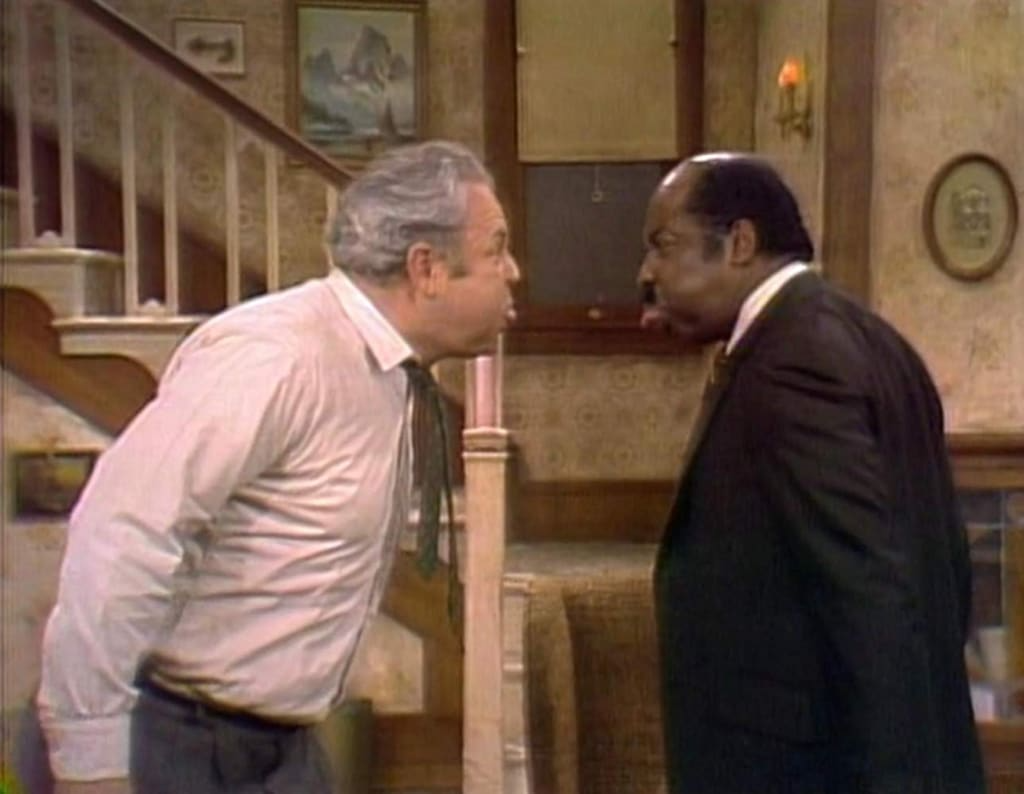
All in the Family is a sitcom that took the world by storm when it first aired in 1971, breaking down barriers and redefining the way television could address real-world issues. With its bold and unapologetic portrayal of controversial topics like race, politics, and gender roles, this show revolutionized the genre and set a new standard for future television programming. But what made it so significant? Why does All in the Family continue to be celebrated as one of the greatest sitcoms of all time?
A Groundbreaking Show
The show, created by Norman Lear, focused on the Bunker family, headed by the iconic Archie Bunker, played by Carroll O’Connor. Archie, a working-class man with outdated views, served as a reflection of society’s shifting cultural landscape. His blatant prejudices and outdated views provided the perfect vehicle for tackling issues that were rarely discussed on TV in the past.
The combination of humor and serious social commentary in All in the Family allowed the series to tackle racism, sexism, war, and economic disparity, making it not just a sitcom, but a platform for societal change. The show’s innovative approach made viewers laugh, think, and sometimes even cringe, as it opened up conversations about topics that were often swept under the rug.
Memorable Characters
The Bunker family, with Archie at the helm, became a cultural phenomenon. Edith Bunker, played by Jean Stapleton, was the loving yet naïve wife who often provided comic relief in contrast to Archie’s cantankerousness. Their daughter, Gloria, portrayed by Sally Struthers, was a liberal voice that constantly clashed with her father’s conservative views, providing an excellent juxtaposition of generational and ideological differences.
Then there was Mike Stivic, Gloria’s husband, portrayed by Rob Reiner. Mike, or “Meathead,” as Archie called him, was the epitome of the younger generation challenging traditional values. The dynamic between Archie and Mike highlighted the generational conflicts that defined the 60s and 70s, where younger people were pushing for change and the older generation resisted it.
Cultural Impact and Controversy
The impact of All in the Family was immediate and far-reaching. While many viewers loved the show for its humor and relatable characters, others were offended by its portrayal of taboo topics. This division led to numerous debates about censorship and the role of television in shaping public opinion. The show didn’t shy away from pushing boundaries, and it sparked conversations that led to social change in many ways.
By addressing complex issues with humor and unapologetic honesty, All in the Family pushed the boundaries of what was considered acceptable on TV, paving the way for other sitcoms and dramas to explore sensitive issues with similar boldness. It was a show that made you laugh, but also made you reflect on your own values and beliefs.
A Show Ahead of Its Time
In many ways, All in the Family was ahead of its time. It wasn’t afraid to deal with the uncomfortable realities of life, and its influence can still be felt today. The show’s fearless approach to tackling serious issues continues to inspire modern sitcoms, like The Simpsons and South Park, which take on social and political commentary in similar ways.
The show also introduced the concept of “edgy” comedy to mainstream audiences, which would later be embraced by comedians and television writers alike. The legacy of All in the Family is not just in its characters or storylines but in its lasting impact on television and society as a whole.
Conclusion: Why All in the Family Still Matters
Even decades after it aired, All in the Family remains relevant because it tapped into universal themes—family dynamics, generational conflict, and the changing landscape of American society. Its fearless approach to tackling social issues head-on, combined with its sharp humor, has cemented it as one of the greatest sitcoms in TV history.
Whether you’re revisiting the show for the first time or watching it again after many years, All in the Family offers more than just laughs—it offers a chance to reflect on how far we’ve come as a society and how much further we have to go.
